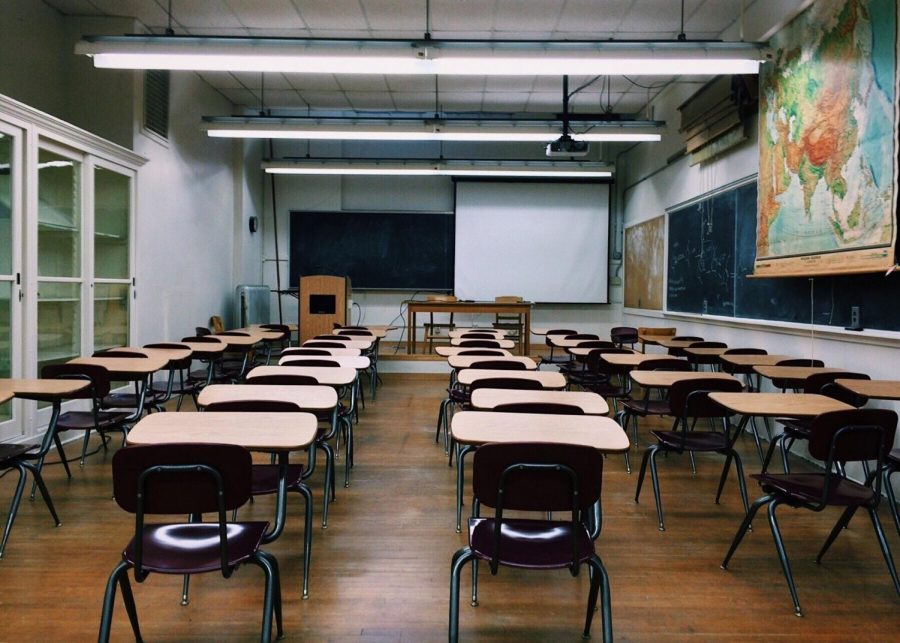OPINION: New Washington sex ed bill isn’t a good option
Senate Bill 5395 doesn’t take into account difference of circumstances; children aren’t homogenous
Sex ed is an important part of childhood development. However, this Senate bill is not necessarily the right way to achieve that.
October 27, 2020
Washington’s current sexual education bill demonstrates that our society differs in opinions about what is appropriate and what is not in a classroom setting. There are not only two polar opinions in support or rejection of the bill, but the palette of views has more variation.
Let’s start with a short introduction to this sex education bill and how it can change our children’s education.
Senate Bill 5395 would require public schools to provide comprehensive sexual health education to students grades 6-12 beginning in the 2021-22 school year and for all public school students starting in the 2022-23 school year.
The material is tailored to the ages of the children, according to the bill. For example, social-emotional learning is the only curriculum until grade 4, where age-appropriate sexual education is assigned, continuing until graduation.
“I think some of the information in this bill is too much for young children,” Pullman resident Kari Rimbey said. “It is too much graphic information before they are old enough or mature enough to really understand the information.”
The bill includes parental consent information. Every parent will have access to all related materials, and children can be excluded from the instruction. Parents will decide what their child will see.
I think both opposing opinions make sense. I agree that some information can shock young children, and it is unknown how some children can react to that visual information.
On the other hand, parents still control the process, and they can reject those classes for their children if they do not like the material used for the course. It is better to get information from licensed education professionals than from the street.
“I work in school, and I have been present for all ages of this type of curriculum,” said Anna Weber, member of the WSU Mom’s Weekend Facebook group. “It is very age-appropriate, and it is more about helping young children have healthy boundaries.”
I believe teachers in schools and educational psychologists would not support something that can hurt our childrens’ sensitive minds, but how is it possible to generalize the appropriate material for everybody?
Every child will react to visual material differently. Maybe it would be a good idea for psychologists to work with every child and parent before defining how children are ready for such sensitive information.
Based on this sex education bill, parents decide how ready their children are, but what if some parents are not knowledgeable about their child’s development? Parents can often make bad decisions for their children. Children are not the property of their parents.
“It is an attack on the age of innocence,” Rimbey said. “If you saw something happening and it was really wrong, you would want to say something about it to make parents aware.”
Sex education does not necessarily sexualize children earlier because many physiological components play a role, including hormones. However, it can make them feel uncomfortable if they are not ready.
I still think there should be a more complex study about children’s varied responses before any educational changes are implemented. I believe it is wrong to say that every child is on the same page because they are not.
I think that sex education in school should be not about the parents’ rights to control what information comes into their child’s minds, but about the children’s rights to receive the information when they are ready for it.
It is a crime to do anything against the person’s will, even if it will have positive outcomes.
Sexual education is a good idea, and we need it in school to protect children from getting information from the wrong source. Still, the mechanism of providing this knowledge should be more personalized, working with every child and teen to see how every person should receive the information and at what level.


















Kari J Rimbey • Oct 27, 2020 at 10:46 am
Remember the D.A.R.E. program? It attempted to educate children on the danger of drugs. “Just say no” didn’t work. The program introduced the variety of drugs available, resulting in increased drug use. The warnings were overwhelmingly ignored by students too immature to make informed decisions. One might compare the intention of this same failed program with a graphic sex-ed program. Tell the students what everything is and how to use it, or consent to use it, then warn them to use a condom or just say no.
I’m not a child psychologist, but I don’t think it’s too much of a stretch to say were introducing more curiosity (and opportunities for sexual abuse), than sound education.
Thank you, Hannah, for writing this article.
Ryan • Oct 27, 2020 at 7:03 am
Wait, did you just quote ‘Karen on Facebook’ to support your opposition? At least find some medical r child psychology expert to support your argument, not ‘somebody in a Facebook group.’